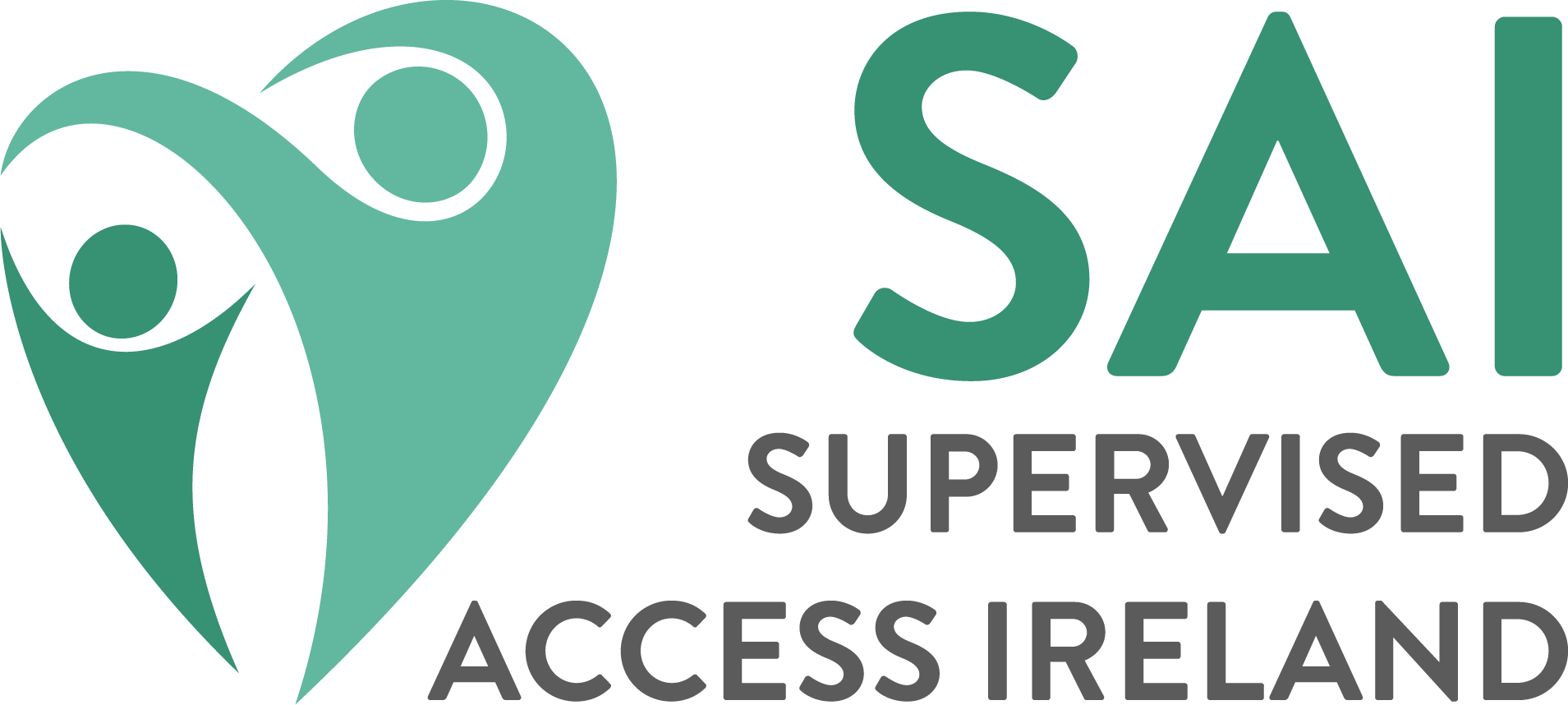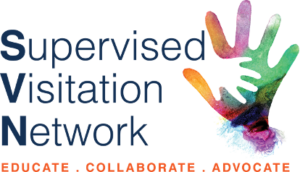FAQ topics and responses related to family-supported supervised access. These questions cover various issues that both families and solicitors may have.
FAQ
What is family-supported supervised access?
Family-supported supervised access is a structured arrangement where a child maintains contact with the non-custodial parent or family member under the supervision of another trusted family member or neutral adult. It aims to ensure the child’s safety while preserving important family relationships.
When is family-supported supervised access necessary?
Family-supported supervised access is typically necessary when there are concerns about the child’s safety or well-being during unsupervised contact. These concerns can arise due to a history of domestic violence, substance abuse, mental health issues, or unresolved parental conflict.
Who can act as a supervisor during family-supported supervised access?
The supervisor is usually a trusted, neutral adult agreed upon by both parents and /or ordered by the courts. This person could be a family member, a friend, or a professional trained in supervised visitation. The supervisor’s primary role is to ensure the child’s safety during visits.
How long does family-supported supervised access last?
The duration of family-supported supervised access varies based on the specific circumstances. It could be a temporary arrangement until the non-custodial parent demonstrates they can provide a safe environment for the child, or it might be a more long-term solution.
What happens during a supervised visit?
During a supervised visit, the child and the non-custodial parent spend time together in the presence of the supervisor. The activities can vary widely, but the main goal is to provide a safe and positive environment for the child to maintain a relationship with the non-custodial parent.
What rights do parents have in family-supported supervised access situations?
Both parents have the right to be treated with respect and dignity. The non-custodial parent has the right to spend quality time with their child, while the custodial parent has the right to know their child is safe.
Can the arrangement be changed or modified?
Yes, family-supported supervised access arrangements can be modified based on changes in circumstance, the child’s needs, or if all parties involved agree to the changes. Any modifications should always prioritize the best interests of the child.
What can a solicitor do in cases of family-supported supervised access?
A solicitor can provide legal advice, represent parents in court, and help draft agreements related to access arrangements. They can also help advocate for the rights and interests of their clients.
What is the role of the court in family-supported supervised access?
The court’s role is to decide the access arrangement that best serves the child’s interests when parents cannot agree. The court considers several factors, such as each parent’s ability to care for the child, the child’s relationship with each parent, and any potential risk factors.
How can I prepare my child for family-supported supervised access?
The best way to prepare your child is to explain the situation in a simple, age-appropriate way. Assure them that the supervised visits are designed to keep them safe, and it’s okay to share their feelings about the visits with you.
What fees are involved in family-supported supervised access?
The costs can vary widely depending on the specific circumstances. If a professional supervisor is involved, they may charge a fee for their services. Additionally, there might be legal fees if solicitors or courts are involved in establishing the arrangement.
How long does it take to set up family-supported supervised access?
The timeframe to establish family-supported supervised access can vary based on several factors, including the complexity of the situation, court involvement, and the availability of a suitable supervisor. In urgent cases, arrangements can be put in place quickly, but it’s important to ensure all details are correctly sorted to safeguard the child’s wellbeing.
What happens if the non-custodial parent cannot afford the fees?
If a non-custodial parent cannot afford the fees, they may seek assistance from community organizations that offer low-cost or free services. The court may also consider the parent’s financial situation in making its order. It’s essential to communicate this issue openly to find a viable solution.
Can the custodial parent be asked to cover some or all of the costs?
The decision about who bears the cost of the supervised visits can be mutually agreed upon by the parents, decided by a mediator, or ordered by a court. It depends on factors such as the financial situation of both parents, the reason for supervision, and local laws and regulations.
What is the process of setting up family-supported supervised access?
The process typically begins with an assessment of the family situation, often carried out by the courts, a social worker or family law professional. Once the need for supervised access is established, all parties must agree on the details, including the supervisor, location, frequency, and duration of visits. This agreement might be made informally between parents, through mediation, or by a court order.
How is the supervisor chosen for family-supported supervised access?
The supervisor can be mutually agreed upon by both parents, suggested by a mediator, or appointed by the court. They must be a neutral party who can ensure the child’s safety and wellbeing during the visit.
What happens if the non-custodial parent misses a scheduled visit?
If the non-custodial parent misses a visit, the supervisor will typically document the missed visit and the reason given, if any. Consistently missed visits could potentially impact future access arrangements, as they may indicate a lack of commitment to maintaining the relationship with the child.
What is the role of a supervisor in family-supported supervised access?
A supervisor’s primary role is to ensure the safety and welfare of the child during visits. They’re responsible for observing interactions, intervening when necessary, and sometimes providing reports on the visits.
Can family-supported supervised access take place in a home setting?
Yes, family-supported supervised access can take place in a home setting if it is deemed safe and suitable for the child. This decision depends on various factors such as the supervisor’s comfort level, the non-custodial parent’s living situation, and any past issues of domestic violence or abuse.
Can family-supported supervised access occur in a public place?
Yes, visits can occur in public places such as parks, community centers, or restaurants. The specific location should be agreed upon by all parties involved and should be a safe, suitable environment for the child.
Can the non-custodial parent take the child out during the visit?
This depends on the specific terms of the access agreement. In some cases, the non-custodial parent might be allowed to take the child out, provided the supervisor is present at all times. In other situations, the visit may be required to stay in a fixed location.
What happens if the non-custodial parent is late for a visit?
If the non-custodial parent is late for a visit, the supervisor will typically document the delay. If lateness becomes a recurring issue, it may need to be addressed through mediation or court intervention to modify the access agreement.
Can a child refuse to participate in family-supported supervised access?
A child’s feelings and preferences should always be considered in access arrangements, but the final decision depends on their age and maturity. If a child is uncomfortable or unwilling to participate in visits, it’s crucial to explore the reasons and consider professional advice from a counselor or family law professional.
What happens in cases of non-compliance with the terms of family-supported supervised access?
Non-compliance with the terms of access can have serious consequences. This could include legal repercussions such as modifying the access agreement, imposing additional restrictions, or, in severe cases, suspending access rights. Any concerns about non-compliance should be promptly addressed with your solicitor or the court.
Can family-supported supervised access move towards unsupervised access over time?
Yes, the ultimate goal is usually to move towards unsupervised access when it’s safe and in the best interest of the child. This transition depends on various factors, including the non-custodial parent’s behavior during visits, their relationship with the child, and any improvements in the circumstances that led to supervised access in the first place.
What role does a solicitor play in a family-supported supervised access case?
A solicitor provides legal advice and representation for their client in a family-supported supervised access case. They can help negotiate agreements, represent the client in court proceedings, and ensure the client’s rights and interests are protected.
When should I seek legal representation for a family-supported supervised access case?
It’s advisable to seek legal representation as early as possible if you’re involved in a family-supported supervised access case. This will ensure your interests are protected from the outset and help you understand your legal rights and obligations.
How can a solicitor help negotiate a family-supported supervised access agreement?
A solicitor can guide you through the negotiation process, ensuring you understand all elements of the agreement and helping you advocate for terms that protect your rights and the best interests of your child. They can also ensure any agreement is legally sound and enforceable.
Can a solicitor help modify a family-supported supervised access agreement?
Yes, a solicitor can assist in modifying an access agreement. They can represent you in negotiations with the other parent or their solicitor, and if necessary, in court proceedings to request a modification to the order.
What should I look for when hiring a solicitor for a family-supported supervised access case?
Look for a solicitor with specific experience in family law and supervised access cases. They should have a good understanding of the laws and regulations in your jurisdiction. Additionally, find someone you feel comfortable with, as you’ll need to share sensitive information with them.
How can a solicitor assist if the other parent is non-compliant with the family-supported supervised access agreement?
If the other parent is non-compliant with the agreement, your solicitor can help you navigate your legal options. This could include seeking enforcement of the order, requesting modifications, or in severe cases, pursuing legal action against the non-compliant parent.
What can I do if I can't afford a solicitor for my family-supported supervised access case?
If you’re unable to afford a solicitor, you might qualify for legal aid or pro bono legal services. Some law schools also offer free legal clinics. Additionally, some non-profit organizations provide legal assistance for family law issues.
Can I represent myself in a family-supported supervised access case?
While you have the right to represent yourself, also known as being a “litigant in person,” it’s usually not recommended. Family law can be complex, and without legal training, you might overlook important aspects of your case. However, if you choose this route, make sure you thoroughly research your local laws and regulations.
What is the role of child protection services in family-supported supervised access?
Child protection services can play a significant role in family-supported supervised access. They may become involved when there are serious concerns about a child’s safety or wellbeing. They can conduct assessments, make recommendations about access arrangements, and provide reports to the court.
What happens if there's a concern about child abuse or neglect during supervised visits?
If there’s a concern about child abuse or neglect during supervised visits, it should be reported immediately to the supervisor and child protection services. Depending on the severity and nature of the issue, it may result in a reassessment of the access arrangement or possible legal action.
What safety measures are in place during family-supported supervised access visits?
Safety measures during supervised visits can include the constant presence of a neutral supervisor, agreed-upon rules and boundaries for behavior during visits, and a safe, neutral location for visits. Any concerns or violations are typically documented and can be reported to the court or child protection services.
What should I do if I believe my child is not safe during family-supported supervised access visits?
If you believe your child isn’t safe during supervised access visits, you should document your concerns and report them to the supervisor, to your solicitor and child protection services. In urgent situations, contact the police.
How does family-supported supervised access prioritize child safety?
Family-supported supervised access is designed to prioritize child safety by providing a controlled environment for visits. The supervisor’s presence helps ensure the child’s physical safety and emotional wellbeing during the visit, and rules are put in place to further protect the child.
Can supervised access be suspended due to child protection concerns?
Yes, supervised access can be suspended if there are serious concerns about the child’s safety. Typically, such a decision would be made by the court or child protection services based on evidence of harm or significant risk to the child.
What role does a child protection solicitor play in family-supported supervised access cases?
A child protection solicitor can represent the interests of a child in cases involving family-supported supervised access. They can ensure the child’s rights are protected and that the court understands the child’s situation and needs. They can also help navigate the complexities of child protection laws and procedures.
How are supervisors vetted for family-supported supervised access?
Supervisors are carefully selected based on their ability to provide a safe and neutral environment for the child. This typically involves background checks, reference checks, and potentially training in child protection and supervised visitation.
What documentation should I maintain regarding supervised visits?
You should keep a record of each visit, including the date, duration, activities, any noteworthy interactions, and any issues or concerns that arise. This can be useful evidence if the access arrangements come under review.
What are the consequences if the access agreement is not strictly followed?
If the access agreement is not adhered to, it can lead to legal consequences such as modification of the agreement, reduction in access time, or even suspension of access. Consistent failure to follow the agreement could also impact future legal proceedings.
What specific training should a professional supervisor have for family-supported supervised access?
A professional supervisor should ideally have training in areas such as social care, psychology, child development, child protection issues, managing high-conflict situations, recognizing signs of abuse or distress in a child, and cultural competency.
How often are family-supported supervised access arrangements reviewed?
The frequency of reviews can vary depending on the specifics of the situation, but it’s generally a good practice to review the arrangement periodically to ensure it continues to serve the child’s best interests. Significant changes in circumstances may also trigger a review.
What safety measures can I put in place for the exchange of the child for supervised visits?
Measures can include meeting in a neutral, public location, having a third party present during exchanges, and setting clear rules and boundaries for behavior during exchanges. In some cases, exchanges may be facilitated by a trusted organization or individual.
What are the indicators that a child feels safe and comfortable during supervised visits?
A child’s comfort can be indicated by their behavior during visits. Signs can include willingness to engage with the non-custodial parent, relaxed body language, and positive verbal feedback. If a child consistently shows signs of distress or reluctance, it may be worth seeking professional advice.
Get in Touch
Contact us today to enquire about any of our services.




